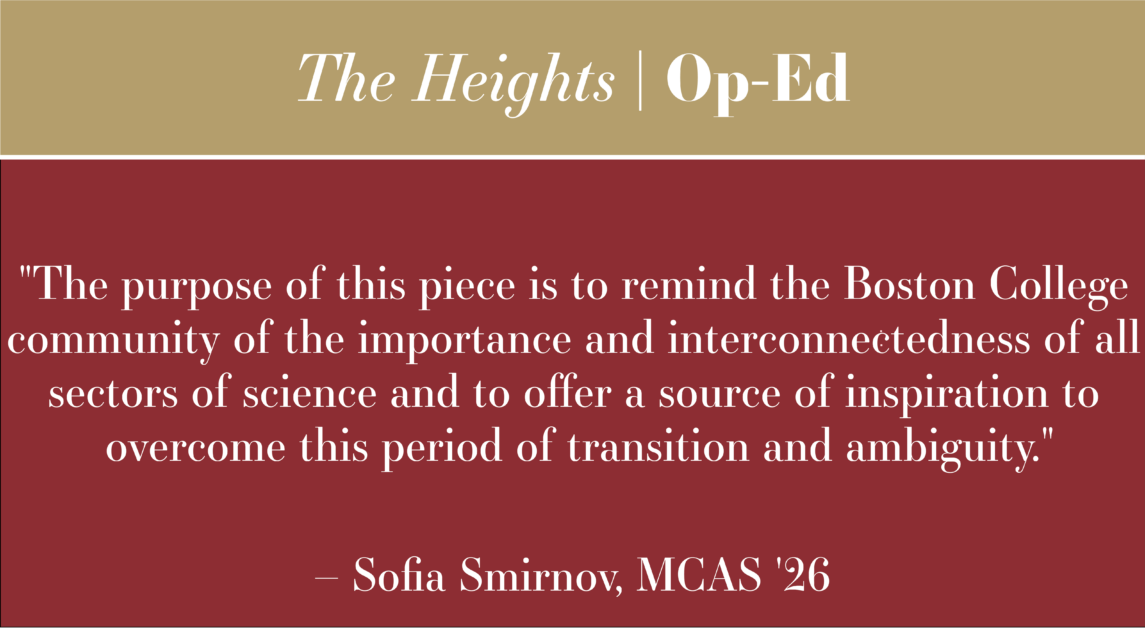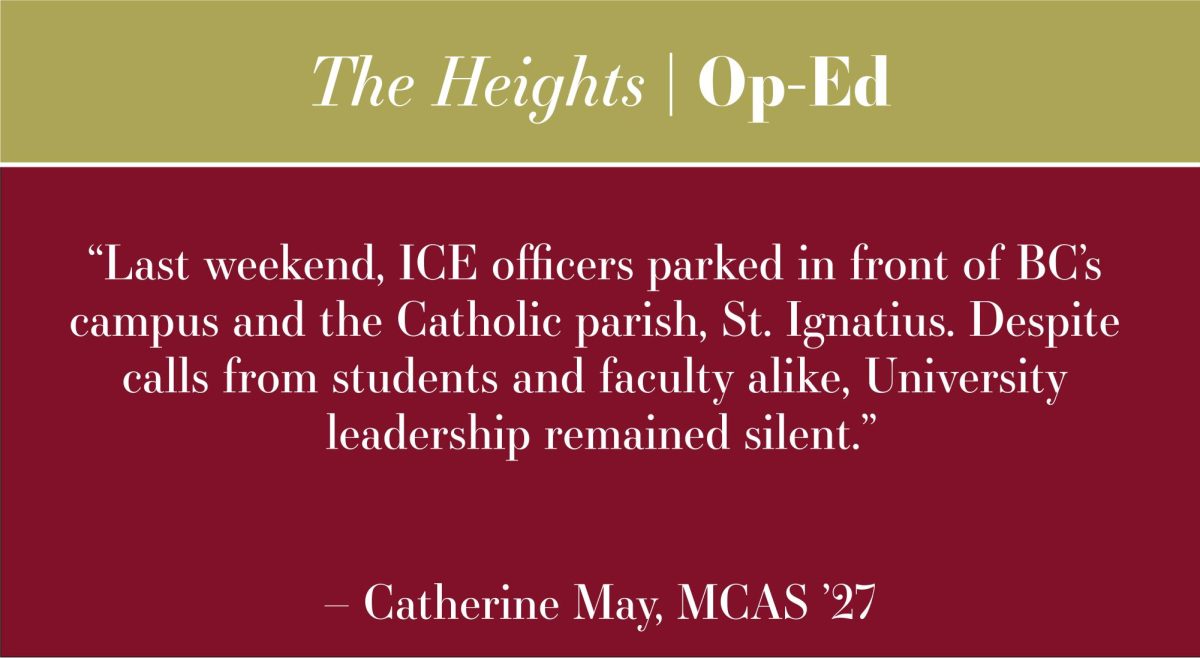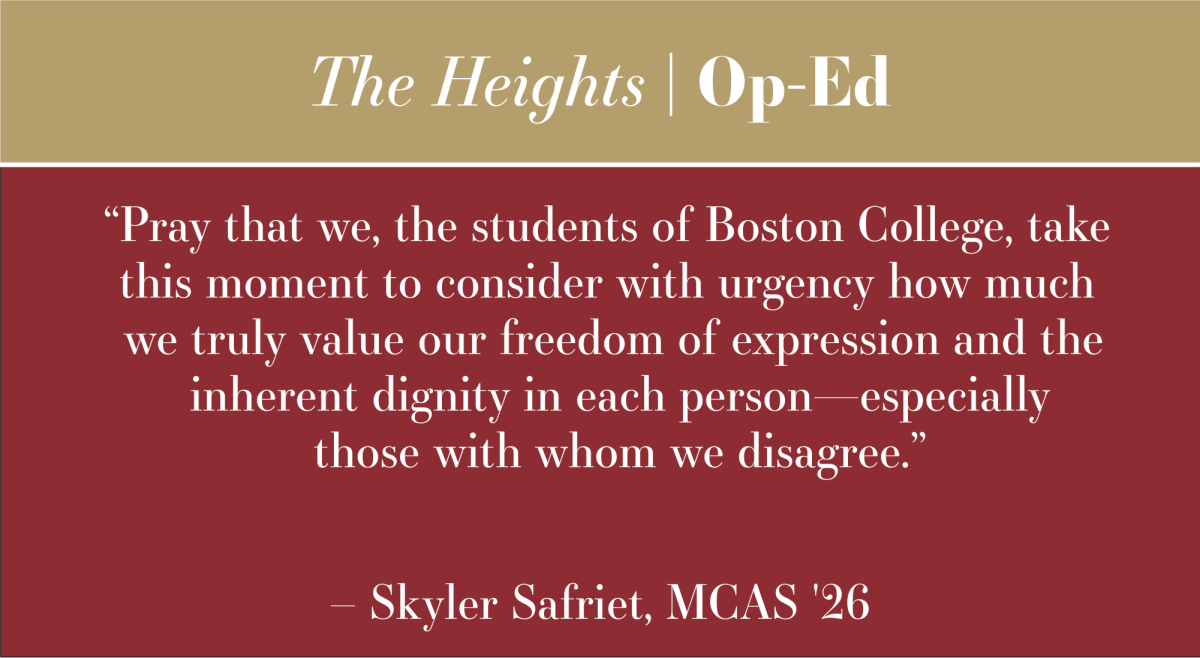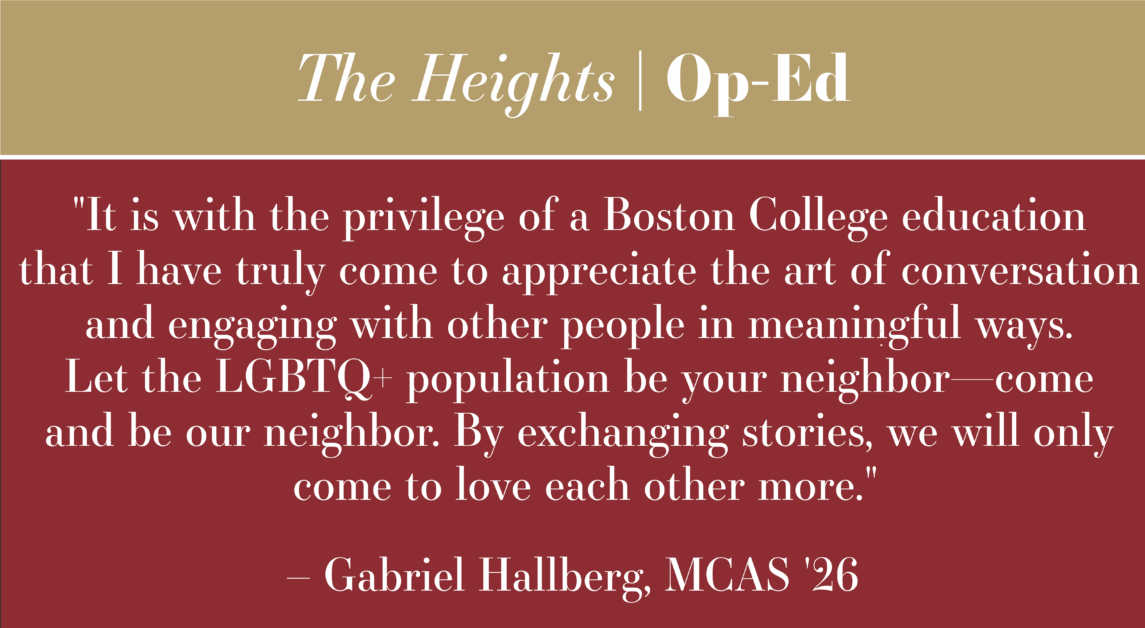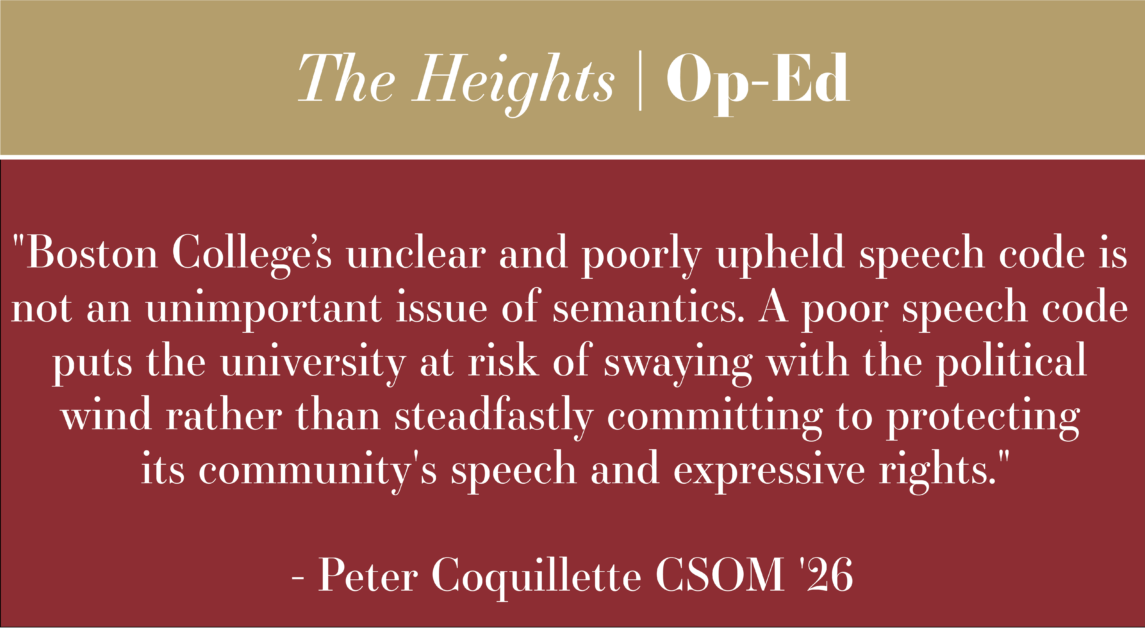Science has traditionally been a steadfast pillar of the global community, advancing the common good. Recent shifts in policies and funding priorities, however, have introduced newfound uncertainties into the scientific world. The purpose of this piece is to remind the Boston College community of the importance and interconnectedness of all sectors of science—and to offer a source of inspiration to overcome this period of transition and ambiguity.
The reduction in grants from the National Institute of Health (NIH) has already led to sweeping repercussions for colleges. Federal funding plays a crucial role in United States higher education infrastructure—the gold standard of and excellence is powered by grants awarded to universities.
One immediate consequence of federal funding uncertainties is the reduction of graduate class sizes at many universities. For instance, the Morningside Graduate School of Biomedical Science at University of Massachusetts Chan Medical School recently rescinded several dozen offers to prospective graduate students. Many other schools are taking similar steps. The University of California, San Diego warned recently accepted graduate students that it cannot guarantee funding. The Harvard Griffin Graduate School of Arts and Sciences rejected all waitlisted applicants. At University of Pennsylvania, department chairs have been instructed to significantly scale down graduate program admission rates.
As a community, we must stay grounded in our core belief—that science is, at its essence, a quest for knowledge. Maintaining the right attitude will be essential in mitigating these emotionally charged environments. We must come together and press forward with optimism and resilience. To do so, we need to highlight the benefits that everyday people derive from the very existence of science. We need to remind Americans that science offers novel therapies for the treatment of diseases—such as vaccines and antibiotics—that not only extend people’s lives but enhance their quality. In this way, the public health sector of our country thrives. These achievements are made possible by collaboration among professionals such as researchers, nurses, physicians, and epidemiologists.
Indeed, the medical sector is bolstered by the support of a wide range of disciplines—consider the role of data analysts who decode health patterns, engineers who develop medical equipment, and policy officials who shape laws and regulation. It is undeniable that the scientific field not only offers a diverse range of employment opportunities but also drives economic prosperity, including fields such as space exploration and renewable energy. More broadly, organizations like the CDC, FDA, NIH, and National Oceanic and Atmospheric Administration help bring these triumphs to life.
The question remains: What can we do—as students, as a community of aspiring scientists? One recommendation is to strengthen partnerships both within and among student science organizations. At BC, groups such as Climate Justice at Boston College, Ethos – Student Bioethics Research Journal, Global Medical Brigades of Boston College, MEDlife, and the Mendel Society already provide meaningful spaces for engagement. By organizing joint initiatives among different organizations, we can uplift one another and foster a more dynamic, united community.
Moreover, creating a partnership with The Heights’ newsletter will aid in the dispersal of information in an accessible language to the entire student body. Ideally, this effort would engage students across all fields of study—finance, economics, pre-law, journalism, and more—to form a stronger, more interdisciplinary team. Discussions could be facilitated through events like Q&A panels or science cafes to encourage open dialogue.
Connecting with the alumni network of BC may also be a starting point for stimulating conversation about how current events will affect the workplace environment. The Graduate Student Association can foster synergy among students at various stages in their careers. Collaboration with graduate students at BC can yield similar benefits. For instance, the Graduate Research Symposium offers an opportunity not only to celebrate the work of doctoral students but also to engage in meaningful discourse. Additionally, we should not hesitate to participate in occasional coffee chats with graduate students in Higgins Hall.
Practicing self-care is unequivocally important. We must understand that in order to pursue our scientific aspirations, we need to be holistically healthy. Balance and relaxation ultimately propels us forward. Find joy from socializing and strengthening relationships with friends and family, as well as in hobbies that spark creativity and bring about interpersonal flourishing. If you enjoy meditation, consider checking out Mindful Mondays, an event hosted by the Division of Student Affairs.
I believe that the unification of the BC community is key to overcoming challenges. Together, we can develop robust and solution-oriented recommendations for University administrators. Matters that may be out of our current control—such as hiring practices and seeking funding from private corporations to properly store research—can be addressed by those in administrative roles who shape University policy.
[/vc_column_text][/vc_column][/vc_row]

